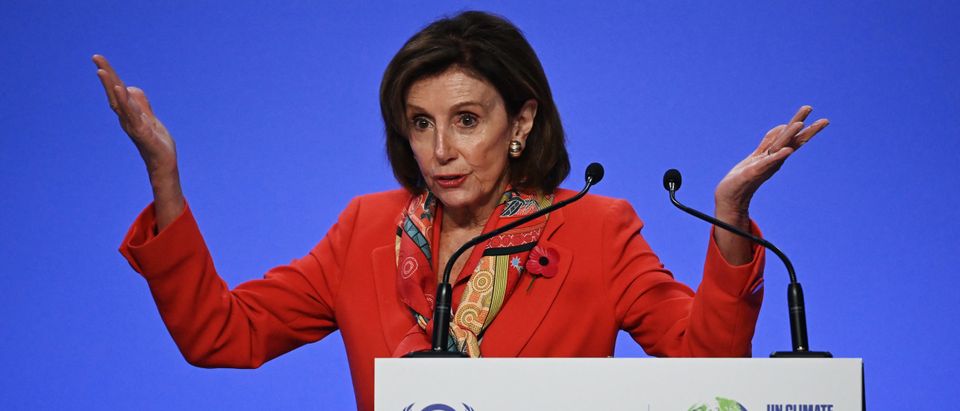Some social media users have begun tracking the stock trades of several elected officials in an effort to beat the market, as bipartisan attempts to ban members from trading have begun to heat up.
35 members of Congress outperformed the SPDR S&P 500 ETF Trust, an index fund that tracks the 500 most valuable stocks in the world, according to a chart that circulated on several social media platforms, including the notorious WallStreetBets subreddit. The member who most outperformed the S&P 500 index in 2020, Republican Georgia Rep. Austin Scott, briefly trended on Twitter after the report was released by Unusual Whales, a website that monitors the stock trading habits of members of Congress.
“My wife and I own stocks like millions of American families, and all investments we make are legal and disclosed in compliance with federal law. We will continue to abide by all laws and regulations,” Scott told the Daily Caller of his trades.
Scott filed twelve reports with the House clerk detailing trades in 2021, which he is legally mandated to do under the STOCK Act. The STOCK Act requires members of Congress to report market transactions within 45 days of their execution and prohibits members and aides from trading individual stocks based on non-public information. However, violations of the law’s reporting requirements are rampant, a December investigation from Insider revealed.
🚨BREAKING NEWS🚨
I have just released the full trading report on politicians in 2021.
In short, many beat the market.
They traded more than ever before.
And they made numerous unusually timed trades, resulting in huge gains.
Read it here: https://t.co/CQ6JphecwZ pic.twitter.com/ra9DEjV0ok
— unusual_whales (@unusual_whales) January 10, 2022
Of the 35 members who beat the S&P 500 index fund, 19 were Democrats and 16 were Republicans. Speaker of the House Nancy Pelosi, whose trades are often scrutinized by social media users, had the best performance of congressional Democrats, and the sixth-best of all members, according to Unusual Whales. Notably, Pelosi exercised call options on Microsoft stock in March, less than two weeks before the U.S. Army announced a $22 billion contract with the tech giant.
Pelosi has publicly opposed efforts to ban members of Congress from trading individual stocks, claiming that elected officials “should be able to participate in” the U.S.’s “free market economy.” (RELATED: Democratic Rep. Cindy Axne Traded Stocks For Companies Her Committee Conducts Oversight Of)
Pelosi’s office did not immediately respond to the Daily Caller’s request for comment on several proposals to ban members of Congress from trading individual stocks.
The operator of the Unusual Whales site, who publishes market analysis under the name Mr. Whale, explained to the Daily Caller that he was inspired to create the website by trades conducted in the 2020 market, which he described as “full of inequities.”
“Part of building better tools in the market is showing data on places where the market may be unfair,” Mr. Whale said. “You can see most of my writing time is spent around data, trading, and the intersection of politics and finance.”
In the early days of the COVID-19 pandemic, several members of Congress made trades that led to investigations from the Securities and Exchange Commission and the Federal Bureau of Investigation. Sens. Richard Burr of North Carolina, Kelly Loeffler and David Perdue of Georgia, and Dianne Feinstein of California or their family members all sold large amounts of stock shortly after being briefed on the potential severity of COVID-19. No one was charged with criminal wrongdoing, but Burr was forced to step down from his perch atop the Senate Select Committee on Intelligence. (RELATED: Sen. Richard Burr Called Brother-In-Law Ahead Of Stock Dump)
Following those investigations, several members of Congress, across partisan lines, have introduced bills to prevent elected officials and their immediate families from trading individual stocks. Democratic Illinois Rep. Raja Krishnamoorthi gained 20 Democratic and two Republican co-sponsors for the Ban Conflicted Trading Act in the House, but his bill has not been passed out of committee.
Republican Texas Rep. Chip Roy and Democratic Virginia Rep. Abigail Spanberger introduced the TRUST in Congress Act in January 2021. That bill would require members, spouses, and dependent children to place their investments in blind trusts. Like the Ban Conflicted Trading Act, it has not been passed out of committee.
“As Speaker Pelosi’s recent transactions make clear, decisions made for the people should be separate than decisions made for personal enrichment. We should be having a reasonable debate about the conflicts of interest that arise or are perceived to arise from trading stocks while making policy decisions. Contrary to what some other Members say, putting assets in a blind trust or broadly traded mutual funds doesn’t prohibit that,” Roy told the Daily Caller of his bill.
House Minority Leader Kevin McCarthy is considering endorsing a ban on members trading individual stocks, the Daily Caller News Foundation confirmed Wednesday, although any action would have to wait for Republicans to take back the House of Representatives. McCarthy’s deliberations were first reported by Punchbowl News.
🚨NEW in @PunchbowlNews AM: @GOPLeader considering a ban on lawmakers holding and trading stocks if Republicans take back the majority in November.
This planning is in its early stages. MORE DETAILS ⬇️ pic.twitter.com/gFv6BYA0Ka
— Jake Sherman (@JakeSherman) January 11, 2022
Sens. Josh Hawley of Missouri and Jon Ossoff of Georgia are also floating proposals that would ban members from trading individual stocks, but neither has introduced a bill.
Mr. Whale declined to say whether or not he would support a member ban on individual trades, explaining that he “tr[ies] to avoid opinions.”
However, he added, “it is very odd that it took a cartoon grinning whale three years for people to finally start agreeing with him.”


